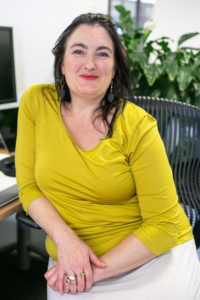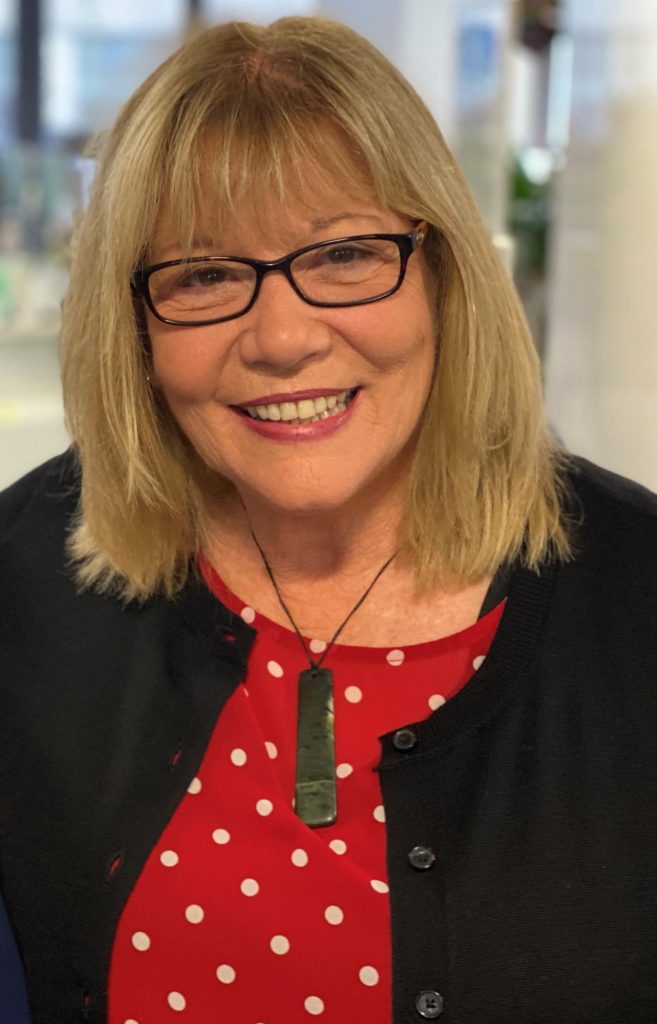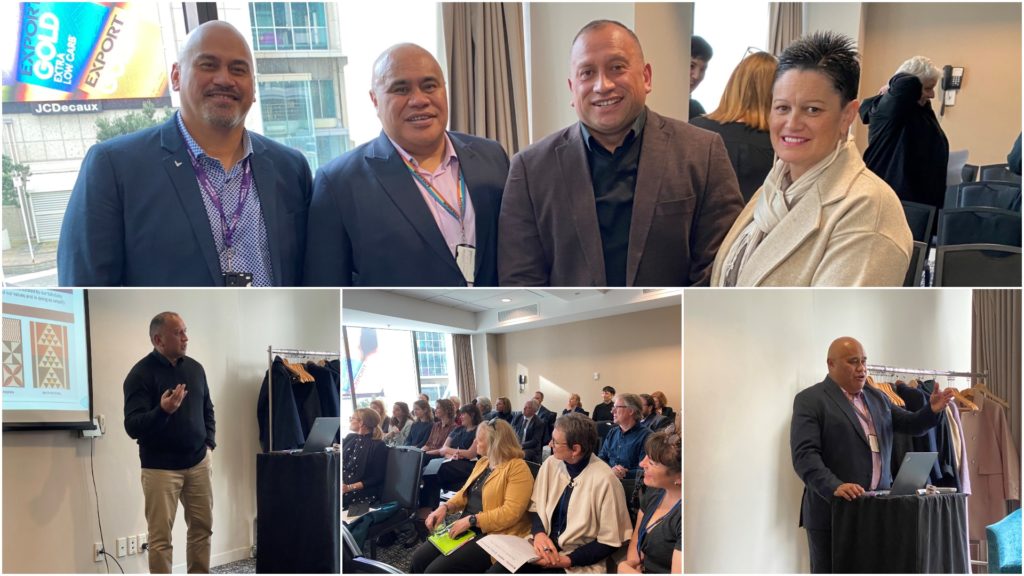He ara pūkenga, he ara tauwhiro, hei whakamana mātā waka.
The many pathways of knowledge, the many pathways of social work, upholding the dignity of all

As we wrap up this year’s Practising Certificate (PC) round, and a month that has given us everything that a New Zealand winter can offer, I wanted to reflect on the incredible mahi we have seen.
Firstly, I would like to thank everyone who renewed their Practising Certificates and participated in the 2021 workforce survey. Renewing your PC is vital as it allows social workers to legally practise in New Zealand and it is where you declare you are fit and proper to practise. It assures the public that you operate within the Code of Conduct, have regular supervision, and engage in continuing professional development. A reminder to those who are practising social work or are thinking of returning to practice, you are required hold a valid Practising Certificate. If you still need to but have been unable to do so, please contact us as soon as possible.
I also wish to acknowledge the great efforts of the SWRB Registration team, who have worked extremely hard to ensure that social workers were able to renew their PCs by the end of June. Collectively they have answered thousands of emails and phone calls over the last month which has allowed social workers to continue practising and do all the impactful work that we see on a daily basis. This was the first year with our new system and over 7,700 social workers have now renewed their PCs. We have greatly appreciated everyone’s patience and understanding during this peak busy period.
In line with APC obligations, the next major piece of work coming up is the annual CPD audit in August. We will touch more on this later in this newsletter, but I just wanted to highlight the importance of having up to date CPD logs. CPD strengthens your learning, education, and development needs, as identified by yourself, your employer, and/or your supervisor. We don’t audit everyone – but choose a random selection who are representative of the wider sector. However, keeping your CPD up to date is important regardless of whether you are selected to be audited this year. We will be hosting digital sessions and providing additional information for those who wish to learn more about logging your CPD and the audit process. We are also making exciting new developments regarding the Experience Pathway: S13 which you will learn more about in the months ahead.
Sarah Clark,
SWRB Chief Executive
CPD audit in August
The SWRB will be starting the 2021 CPD audit on the 20thof August. The audit will include a random selection of 5% of all social workers that held a practising certificate during the 2020/2021 year. If you are selected, we will be asking for a record of your CPD from 1st July 2020 – 30th June 2021.
We will be contacting all those selected for the audit on the 19-20 of August. If you hear from us, you will need to upload your log to your CPD page on MYSWRB by the 20th of September. If you are not contacted, you will not be audited this year. You will have recently updated your information in MySWRB when you applied for your Practising Certificate, but please ensure it is correct as this makes getting in touch easier.
Continuing Professional Development (CPD) is important because it’s about staying current, engaging in life-long learning that enhances your professional development and cultural competence. CPD supports you to achieve good outcomes for the people you work with.
The goal for your CPD is to identify your learning objectives and ensure you undertake CPD that enables you to reflect on the SWRB’s ten core competence standards.
As you know, your CPD log must be updated each year. Within your CPD log, it is an expectation that:
- your CPD activities are linked to the ten core competencies and ensure that your practice remains current and relevant
- your CPD activities must reflect on practice that supports your competence to work with Māori
- you have completed a minimum of 20 hours CPD during the year
- you have critically reflected on your CPD learning, the relevance of your CPD to practice and the core competencies.
The logs will be reviewed externally by experienced, registered social workers, to confirm that CPD has been undertaken, is relevant, and includes critical reflection. It is essential you keep your log current.
During August, we will be hosting digital Q&A sessions focusing on CPD (Thursdays at 1pm). You can find more information about these on our website or Facebook page. You can also find more information including CPD log and audit FAQs on our website here.

The move to Digital PC cards
With the implementation of our new database, we were presented with the opportunity to transition away from plastic practising certificate cards as social workers now can instantly access to their PCs through their MySWRB, where they can view, download, and print A4 or wallet size versions. While the move away from plastic cards is much better in terms of sustainability, we also recognised that cards have been important for many social workers. So before we made any decisions, we asked people what they thought and there was strong support for the online version for clients.
In addition to environmental factors of limiting plastic manufacturing and consumption, other factors were also taken into account, including reducing the delay in social workers receiving their Practising Certificate confirmation, the restrictions on using physical ID cards in the COVID-19 environment and minimizing the growing processing costs that would have fallen on the sector .
We do acknowledge also that there are employers who expect social workers to provide identification. The shift to a digital format mirrors that of the Nursing and Teaching Councils. When gathering information about making the change, we found no other regulators are currently issuing photo cards for use as identification. Although we are aware that some social workers used their SWRB card for identification, the provision of identification cards was regarded as the responsibility of employers.
For those who may have concerns about physically or electronically displaying their practising certificates, we also suggest encouraging others to use the SWRB public register, to check for themselves. When someone renews their PC online, and it has been approved, that information will automatically appear on the SWRB Public Register.
The change helps ensure public safety, as people become more familiar with the register and can personally check if they have any concerns. This gives individuals the ability to verify they are working with a registered professional that adheres to a Code of Conduct, as it contains the most accurate, up to date information regarding all registered social workers working in Aotearoa New Zealand.
Experience Pathway: S13 update
The experience pathway process is currently being refined, building on work we’ve done over the last few months. We’ve seen a great response in terms of applications – and we hope there are more to come! We are aiming to roll out our revised process in September 2021. Our new process will place more emphasis on connections and relationships – and will also mean that for you can speak to your application in person. In the meantime, if you are wanting to apply you can use the current process, which is primarily a written submission, or you can wait until the new process is in place.
The purpose of section 13
If you don’t have a SWRB-recognised social work qualification, but you do have significant experience in social work, you may be eligible to be registered as a social worker through the Experience Pathway: S13.
The application criteria
To apply, we want you to demonstrate your employment experience in a CV, attach your CPD log, provide evidence of supervision, and demonstrate your social work practice through a case study and competence assessment. We will also want endorsements from your colleagues including registered social workers, your supervisor, and employer.
The Board decision making criteria
The Board will need to be satisfied that you are competent to practise social work, have enough experience, are a safe practitioner and meet our fit & proper criteria.
We welcome applications in English and Te Reo Māori.
Upcoming Q&A sessions
The SWRB has been hosting weekly Q&A sessions on Zoom every Thursday from 1pm. These have been an open forum for social workers and employers to ask any questions about registration or how the SWRB functions as a regulator.

Starting in August, we will be holding specialised digital sessions. We will be hosting sessions focused on the upcoming CPD audit (5th, 12th & 19th August) and we also plan to host a few sessions around graduate registration at the end of the year.
Further details about these sessions will be posted on our Facebook page.
If you know of a social worker or employer who might be interested in attending, please pass this information on to them. We are interested in hearing from the sector about any other topics people wish to discuss, and we can look incorporating them into future sessions.
You can access all these sessions via this link here.
A message from our Chief Advisor Social Work

If you stand up for others through your social work, ngā mihi. Earlier this month, we have seen that in action – a social worker released footage of incidences that occurred in an Oranga Tamariki residential unit.
This social worker’s actions in highlighting the behaviour of other staff illustrated a concern that many social workers in the sector echo – that is the need for qualified, competent, registered social workers (RSW) to work with our tamariki. Registered social workers work with the most vulnerable people in our society and keep them safe by adhering to our Code of Conduct and the ANZASW Code of Ethics.
Let’s do what we can to enhance our profession and acknowledge the incredibly challenging job that social workers do every day.
Dr. Catherine Hughes,
Chief Advisor Social Work
The Regulatory Space through a Māori worldview
The SWRB has been working in collaboration with the Teaching Council, Work Safe and the Nursing Council, to develop a Māori Speaker Series.
Māori experts working in the regulatory space have been providing cultural knowledge and insights to develop a Māori conceptual model that can help us explore and bridge the cultural perspectives between the regulatory space and te ao Māori. The series will involve four seminars throughout the year. The first seminar was in June 2021 and created a lot of impact and interest from the regulatory organisations who attended. The ‘scene setting’ from the first seminar will help shape and inform seminar topics for the year.
The conceptual approach we are using to indigenise the regulatory environment can also contribute to supporting the social work sector.

Workforce survey
This year, as part of the Practising Certificate round social workers were asked to participate in an optional online workforce survey. We would like to give a massive ‘Thank you’ to all of you who participated in the survey when renewing your Practising Certificate this time round. We received more than 4,300 responses, which was a fantastic 56% response rate!
The purpose of the survey is to provide insight into the social worker workforce in Aotearoa New Zealand, by providing information on workforce composition, workforce sustainability, the most important areas for developing your knowledge and skills, and the support you receive from your employer and supervisor.
The information gathered through this year’s survey will be used to develop an overview of the workforce across the country. It will support the SWRB in our new Lead Agency role for social worker workforce planning, support discussions with Government, discussions with educators, and to support employers to understand supply and demand challenges.
Past survey data has previously been used by the ANZASW, the PSA, and the community and voluntary sector to bring to the Government’s attention the inequity faced by social workers, in the community and voluntary sector. Your involvement in the survey is really supporting your profession. Once we have analysed the information you have given, we will report back to you on the trends, and the scale and nature of the challenges facing the social work workforce.

